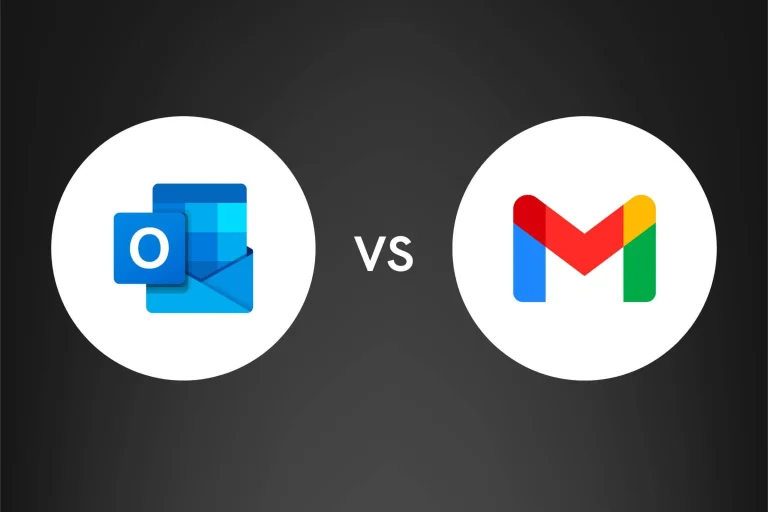Are you looking for a reliable and secure hosting solution that offers more than the traditional shared hosting options? Look no further than VPS Hosting – the perfect way to keep your website running smoothly and efficiently. In this article, we’ll give you an essential guide to VPS Hosting, walking you through what it is, its key features, the benefits of using VPS hosting, and more. Read on for all you need to know about Virtual Private Servers!
Introduction to VPS Hosting
A virtual private server (VPS) is a type of hosting that gives you your own server resources within a shared server environment. This is done by partitioning the physical server into multiple virtual servers, each of which acts like a separate server with its own set of resources and can be configured independently.
A VPS is ideal for those who need more control over their hosting environment but want to avoid investing in a dedicated server. It’s also a good choice for businesses that have outgrown shared hosting but have yet to be ready for a dedicated server.
There are several things to consider when choosing a VPS host, including price, features, scalability, and performance. In this guide, we’ll cover everything you need to know about VPS hosting so you can decide whether it’s right for your website.
Benefits of Choosing VPS Hosting
There are many benefits of choosing VPS hosting over other types of hosting services. With VPS hosting, you will have your own dedicated server resources, so you won’t have to share them with other users on the same server. This means that your website will load faster and be more reliable. Additionally, VPS hosting is a great option for businesses that want more control over their server environment. With VPS hosting, you can customise your server settings and install applications that are incompatible with shared hosting accounts.
Another benefit of VPS hosting is that it is more secure than shared hosting. With a dedicated server, your data will be isolated from other users on the same server, making it more difficult for hackers to access your data. Finally, VPS hosting can offer more scalability than shared hosting. If you need additional resources for your website, upgrading your VPS plan is easy instead of switching to a dedicated server.
Overall, VPS hosting is a great option for businesses that need more control over their server environment and want access to more resources. It is also a good choice for businesses that require more security than shared hosting can provide.
Types of VPS Hosting
There are four types of VPS hosting: shared, managed, cloud, and dedicated.
Shared VPS hosting is the most common type of hosting. It is ideal for small businesses and individual websites requiring only a few resources. For example, your website will be sharing a server with other websites, so you will need to be sure that your website does not use too many resources or it will slow down the other websites on the server.
Managed VPS hosting is a good option for businesses that want more control over their server and their website. With this type of hosting, you will have your own server and your own operating system. You can install any software you need and have full control over your server. This type of hosting is more expensive than shared VPS hosting, but it is worth it if you need more control over your server.
Cloud VPS hosting is a newer type of hosting that uses cloud computing technology. With cloud VPS hosting, your website will be hosted on a network of servers that are all connected to the internet. This allows your website to scale up or down as needed, so you only pay for the resources you use. Cloud VPS hosting is more expensive than shared or managed VPS hosting, but it is a good option for businesses that need to be able to scale their resources up or down as needed.
Dedicated VPS Hosting is the most expensive type of VPS hosting. With this type of hosting, you will have your own server and your own operating system. You can install any software you need and have full control over your server. Dedicated VPS hosting is ideal for businesses that need a lot of resources or want full control over their server.
Setting Up Your VPS Server
If you’re looking to take your website or online business to the next level, a Virtual Private Server (VPS) is the way to go. A VPS is a private, virtual server that exists on a much larger server. Many other websites and businesses usually share that big server.
But with a VPS, your website gets its dedicated portion of resources, so it’s more like having a mini-server. This gives you much more control over your website and allows you to run heavier applications and scripts that wouldn’t be possible on a shared hosting account.
This guide will show you everything you need to know about VPS hosting: what it is, how it works, and whether it’s the right choice for your website or business. We’ll also walk you through the steps of setting up your own VPS server. By the end of this guide, you’ll be ready to make the switch to a VPS and take your website or online business to the next level!
Managing a VPS Server
Managing a VPS server can be daunting for those unfamiliar with the process. However, there are a few basics that anyone can learn to make the process much easier. The first step is understanding the different VPS server types and how they work. The next step is selecting a control panel to help you manage your server. Finally, you must decide how to monitor your server’s performance.
Securing a VPS Server
When it comes to securing a VPS server, there are a few key things to keep in mind. First and foremost, it’s important to ensure that your server is physically secure. This means keeping it in a safe location where unauthorised people can’t access it.
In addition to physical security, you must also take steps to protect your server from attacks. This includes ensuring that your operating system and applications are up to date and using firewalls and other security measures.
Finally, you also need to consider the data stored on your server. This includes both the data that you want to keep private as well as the data that you’re sharing with others. Regarding data security, it’s important to encrypt sensitive information and use secure protocols for sharing data.
Tips for Optimising Performance on a VPS Server
If you’re looking to get the most out of your VPS server, you can do a few things to optimise performance. Here are some tips:
- Use a lightweight web server such as Nginx or Lighttpd.
- Cache static content using a caching server such as Varnish or Memcached.
- Use a PHP accelerator such as APC or Xcache.
- Use a MySQL optimisation tool such as Percona Toolkit or pt-query-digest.
- Make sure your code is well-optimised and efficient.
- Use monitoring tools like New Relic or Scout to monitor performance and identify bottlenecks.
- Follow best practices for optimising website performance.
By following these tips, you can get the most out of your VPS server and ensure that it runs at peak performance levels.
Alternatives to VPS Hosting
Virtual private servers provide great flexibility but are not the only option for hosting your website or application. Here are some other popular choices:
Shared Hosting: Shared hosting is the most common type of web hosting. As its name suggests, you share the server with other customers. This can be a more affordable option, but you’ll also share resources like CPU, memory, and storage space.
Dedicated Hosting: Dedicated hosting gives you your own server. This means you don’t have to share resources with other customers, but it also tends to be more expensive.
Cloud Hosting: Cloud hosting is a newer type of hosting that uses a network of servers in multiple locations. This can provide better performance and uptime than traditional hosting options, but it’s often more expensive as well.
Differences Between Hosting and VPS
Hosting and VPS are two types of web hosting. Both hosting services allow you to create a website and make it accessible to internet users. However, there are some differences between the two services.
VPS is a type of web hosting that provides you with your own virtual private server. This means that you will have your own server resources, such as CPU and memory, which will not be shared with other users. VPS also allows you to install your own operating system and applications, giving you more control over your server environment.
On the other hand, hosting is a type of web hosting that does not provide you with a private server. Instead, your website will be hosted on a shared server along with other websites. You will share resources with other users, such as CPU and memory. Hosting is generally more affordable than VPS since it doesn’t require as much investment in hardware and software.
Conclusion
To conclude, VPS hosting is an excellent choice for those looking to upgrade their existing web hosting setup and take advantage of more advanced features. We hope that this guide has provided you with all the information you need on virtual private servers so that you can make an informed decision about which type of web hosting would best suit your needs. With a VPS server, you’ll have access to greater control and scalability than ever before—so why not give it a try?















